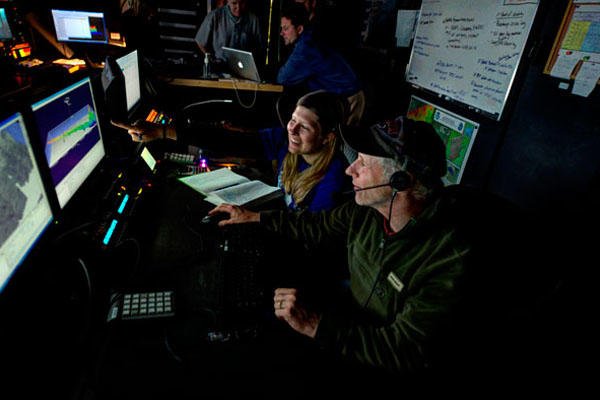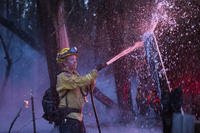We talked to Kathryn Troutman, federal jobs expert, about the challenges of finding a federal job, and she offered her advice on how to apply and get federal employment.
Can you talk a little bit about your experience and expertise when it comes to federal jobs?
I am the President of The Resume Place, Inc., which is a specialized federal resume writing and federal career coaching firm in Baltimore, MD. In 1996, when the SF-171 form was eliminated as the application form for government jobs, I wrote the first book on federal resume writing – the Federal Resume Guidebook. This book is in 5th edition now and includes the latest formats and samples of federal resumes for USAJOBS resume builders and busy federal human resources specialists today. I'm also a Federal Resume Writing instructor to federal employees for federal agencies.
In my book Ten Steps to a Federal Job I narrow down the federal application process into ten steps. It's also a workshop curriculum that has been used by Air Force Airmen & Family Readiness Centers, USN Fleet & Family Support Centers, US Army ACS Centers and USCG Transition Centers. The veterans like the step-by-step process.
This is the third edition of the book – what would you say are the major changes from previous editions?
The third edition is shorter than the 2nd edition, as I tried to streamline the instructions for easy reading on an eBook reader and to keep the ten steps as simple as possible. The book has one case study that runs throughout the book. The keywords, accomplishments and format for the resume are based on one sample to keep it easy to follow. There are 20 other samples available on a website available through the 3rd edition. All of the samples are successful federal resumes that were written for first-time federal applicants.
What would you say are some of the advantages veterans have when it comes to transitioning to a federal job? What are some of the obstacles they face?
The major advantages for veterans in landing a federal job are the following:
- Career positions with promotion potential to increased steps or grades based on the position
- Training and career development in a specific career field
- Opportunities to move to new agencies, offices and departments, once the veteran is in the government
- Study, stable employment that is not dependent on contracts and economic downturns
- Excellent benefits, retirement, and flexibility, including telework for many agencies
Military personnel are also familiar with the structure of government and the chain of command for leadership, which is the same for a government civil service job.
Some obstacles veterans might face include:
- Writing a federal resume so that the resume is focused toward a specific occupation series in government.
- Translating the skills from military experience into government career positions. The jobs are very different, but the competencies developed from the military are sometimes very similar, but they have to be written so that the human resources specialist can understand the experience and rate the veteran as Best Qualified.
- Applying for the federal jobs takes patience and perseverance with a complex online application form, including document uploads, two user name / password set-ups; two profile set-ups, resume matching and a complex self-assessment questionnaire. The application process itself is a TEST.
- Determining which position is right and what grade level is right for a veteran's background. This is not totally obvious when looking at USAJOBS announcements, as there is no specific translation table between MOS and GS positions in government.
Out of the ten steps you focus on in the book, are there any that stand out to you as particularly critical, or perhaps overlooked by the average federal job seeker?
Step 1 – Federal Job Information - What is the correct Occupational Series to target from your background?
Step 3 – Finding Vacancy Announcements - finding eh right announcement that matches your qualifications, KSAs and keywords.
Step 5 – Finding Keywords. Determining which words are important to add and feature in your resume. Which knowledge, skills and abilities keywords and specialized experience can be added to the resume?
***Step 6 – Writing the Federal Resume. This is probably the Number One Problem for the typical federal jobseeker. Many people think that the private industry resume will work for a government application. This is totally incorrect. THE federal resume is much different, longer and more detailed than a private industry resume. Adding accomplishments to the federal resume is critical to get Referred and Interviewed!
Step 7 – Questionnaires and KSAs – the new self-assessment questionnaire is an application test and many veterans do not realize that the questionnaire is critical for the success of their application. The KSAs were eliminated as separate narratives for the current federal application, but NOW, the KSAs must be covered in the federal resume text.
Step 8 – Applying for a Federal Job – Everything has to be right to apply for the federal job. The resume builder, profile selections, documents, and questionnaire must be ready before you submit.
Step 10 – The Behavior-based Interview – This is an actual test, and the interview is critical to land the position. This takes practice and preparation.
Do you have any general advice for veterans who are debating whether to apply for a federal job? How's the outlook for federal jobs in the immediate future?
My general advice would be to absolutely apply for federal positions. These positions are the best careers in America with competitive pay, benefits, flexibility and opportunity for career growth. The positions are the most stable in America. With a veteran's 5 or 10 points that can be added to their scores, this would be a great employer and application to submit.
The outlook for federal jobs in the immediate future is very good, except for some agencies that are freezing and cutting back on hiring – such as Army Civilian jobs and positions at the Pentagon. The agencies that are hiring would be VA, DHS, USDA, DOI and non-DOD agencies. There are also positions in intelligence and law enforcement.











